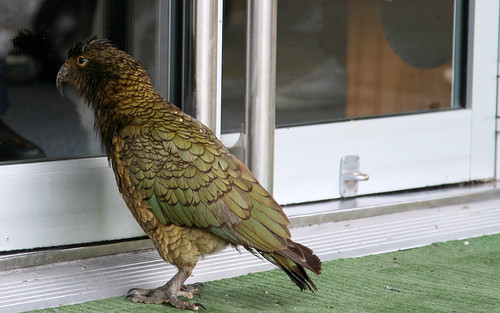 SMART BIRD: Until now, kea were thought to tackle problems in a haphazard fashion. Image by Edwin GimpelKea are apparently even smarter than their widespread reputation as thieves and vandals suggests - even a complicated sequence of locks can't foil them.
SMART BIRD: Until now, kea were thought to tackle problems in a haphazard fashion. Image by Edwin GimpelKea are apparently even smarter than their widespread reputation as thieves and vandals suggests - even a complicated sequence of locks can't foil them.
Hiromitsu Miyata of Kyoto University in Japan first presented kea with boxes of food secured with up to three bolts.
The kea managed to open all of them, so he made the tasks harder.
The most challenging set-up involved two bolts blocking each other such that one needed to be slid open before the second would release.
Mr Miyata, a psychology researcher, found that keas cracked this problem faster if they were allowed to study the set-up for a while before attempting to break it.
In a paper published in the Animal Cognition science journal, he said this suggested the birds were able to plan their moves.
When they had a chance to think over the set-up before tackling it, the birds corrected inappropriate responses more quickly.
Until now, the birds were thought to tackle problems in a haphazard fashion, though they were known for efficient manipulation of objects and explorative and playful behaviours.
"Keas primarily used explorative strategies in solving the lock problems but might have obtained some information about the tasks before starting to solve them," he said.